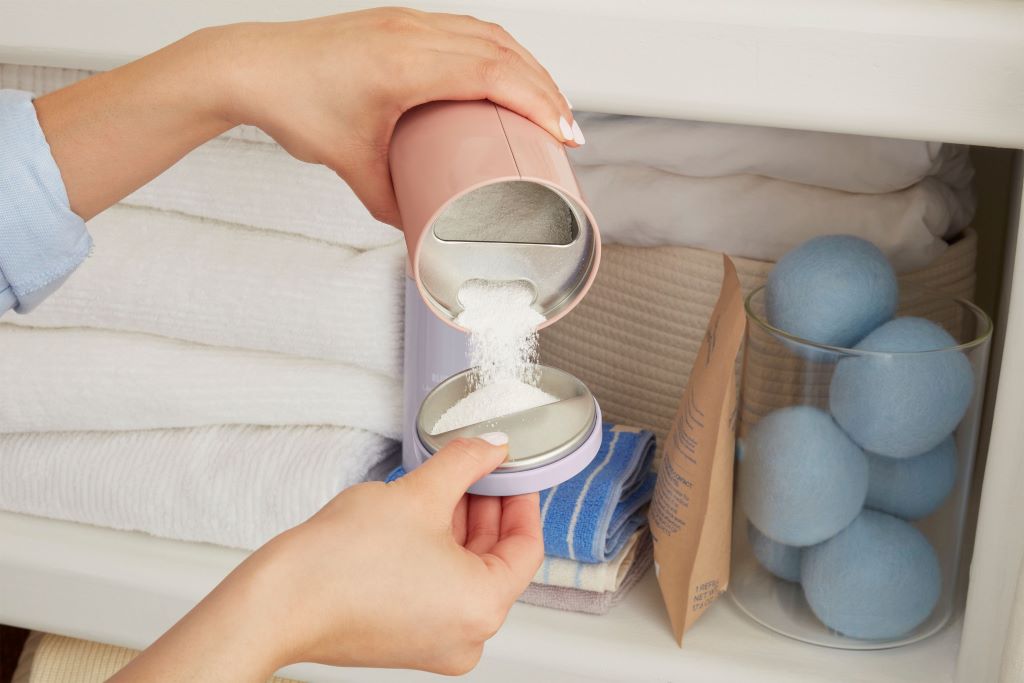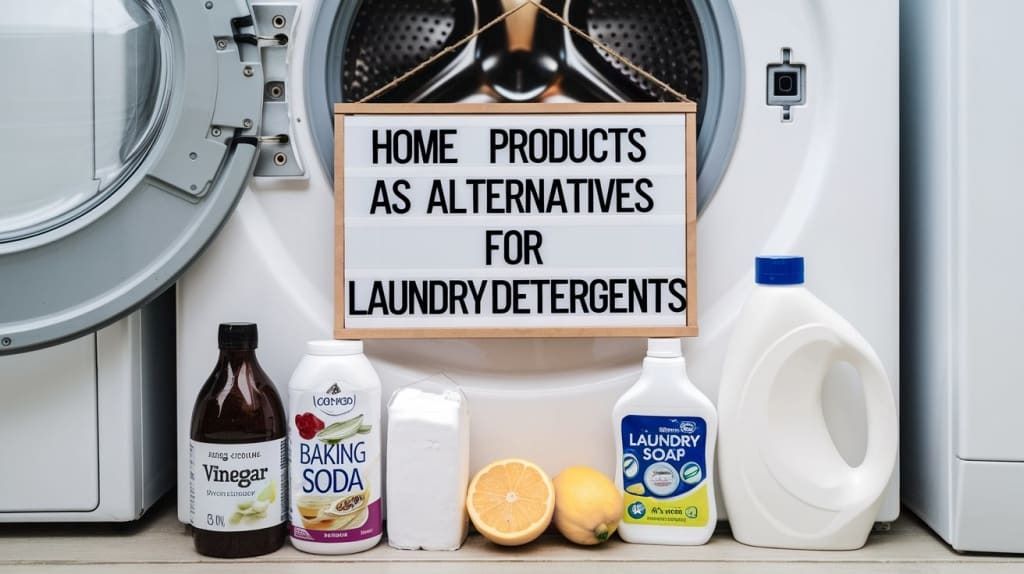Laundry detergent is a staple in every household, but there are times when you might run out, want to cut costs, or prefer a more natural alternative. The question “what can I use in place of laundry detergent” is more common than you think, and fortunately, there are multiple effective solutions. In this article, we’ll explore practical alternatives, discuss their effectiveness, and give you tips to keep your laundry clean and fresh without traditional detergent.
Why You Might Need an Alternative to Laundry Detergent
Running out of laundry detergent at the worst possible time can feel frustrating, but it’s not the only reason to seek alternatives. Here are some common scenarios:
- Budget constraints: Laundry detergent can be costly, especially specialty or eco-friendly brands.
- Sensitive skin: Many detergents contain fragrances or chemicals that irritate sensitive skin.
- Eco-conscious choices: Some individuals prefer natural cleaning agents to reduce chemical impact on the environment.
- Emergency situations: Moving, traveling, or unexpected laundry loads may require quick substitutes.
Understanding the “why” helps you choose the best alternative that fits your needs.
Top Alternatives to Laundry Detergent
Here are several effective options you can use instead of laundry detergent, whether you’re in a pinch or making a permanent switch.
-
Baking Soda
Baking soda is a versatile household item and an excellent laundry booster. It neutralizes odors, softens water, and helps remove stains.
How to Use:
- Add 1 cup of baking soda directly to your washing machine for a full load.
- For tough odors, mix half a cup of baking soda with your laundry water before washing.
Benefits:
- Gentle on clothes and skin
- Cost-effective and widely available
- Eco-friendly and non-toxic
-
White Vinegar
White vinegar is another common household item that works as a natural fabric softener and deodorizer. It also helps remove soap residue and mineral buildup.
How to Use:
- Add 1 cup of white vinegar to the rinse cycle.
- For heavily soiled laundry, you can combine ½ cup baking soda with 1 cup vinegar.
Benefits:
- Eliminates odors
- Helps maintain fabric color
- Safe for most fabrics
-
Castile Soap
Castile soap is a plant-based soap that’s biodegradable and gentle on the skin. It can be used as a direct substitute for liquid laundry detergent.
How to Use:
- Mix ¼ cup liquid Castile soap with 1 cup water before adding to your washer.
- Use cold water for delicate fabrics to prevent excessive sudsing.
Benefits:
- Hypoallergenic and safe for sensitive skin
- Effective on both stains and odors
- Environmentally friendly
-
Soap Nuts
Soap nuts are the fruit of the Sapindus tree and contain natural saponins that act as a detergent. They are a sustainable and reusable laundry solution.
How to Use:
- Place 4–6 soap nuts in a small cloth bag and toss them into the washing machine.
- Reuse the same nuts for up to four loads.
Benefits:
- Chemical-free and hypoallergenic
- Perfect for eco-conscious households
- Works in both hot and cold water
-
Lemon Juice
Lemon juice is a natural bleaching agent that can brighten whites and remove stains.
How to Use:
- Add ½ cup of lemon juice to the wash for white clothes.
- For tough stains, apply lemon juice directly to the stain before washing.
Benefits:
- Natural whitening agent
- Removes odors
- Environmentally friendly
-
Hydrogen Peroxide
Hydrogen peroxide is a safe, non-chlorine bleach alternative that helps disinfect and whiten laundry.
How to Use:
- Add 1 cup of hydrogen peroxide to the wash for white or light-colored clothes.
- Use in combination with baking soda for extra cleaning power.
Benefits:
- Kills bacteria and mold
- Brightens whites without harsh chemicals
- Affordable and accessible

-
DIY Laundry Detergent
If you want a more permanent alternative, you can make your own detergent at home using simple ingredients like washing soda, borax, and grated soap.
Basic Recipe:
- 1 cup washing soda
- 1 cup borax
- 1 bar of grated unscented soap
How to Use:
- Mix all ingredients and store in an airtight container.
- Use 2–3 tablespoons per load.
Benefits:
- Cost-effective for long-term use
- Control over ingredients
- Eco-friendly
Tips for Washing Without Detergent
Using alternatives to detergent may require some adjustments in your laundry routine:
- Sort Your Laundry Carefully: Separate whites, colors, and delicates to avoid staining or fading.
- Use Hot Water for Stains: Hot water helps remove oils and tough stains more effectively.
- Pre-Treat Stains: Baking soda, lemon juice, or vinegar can be applied directly to stains before washing.
- Don’t Overload the Machine: This ensures your laundry gets properly cleaned and rinsed.
- Rinse Thoroughly: Some alternatives, like Castile soap, may leave residue if not rinsed well.
Common Questions About Laundry Detergent Alternatives
- Can I use baking soda and vinegar together?
Yes! Baking soda helps lift stains, while vinegar neutralizes odors and softens fabrics. Add baking soda at the start of the wash and vinegar during the rinse cycle. - Are these alternatives safe for all fabrics?
Most alternatives are safe for cotton, polyester, and blends. However, delicate fabrics like silk or wool may require special care. Always check the garment label before using alternatives. - Will my clothes smell clean without detergent?
Yes, especially if you use baking soda, vinegar, or soap nuts. Adding essential oils like lavender or tea tree can enhance fragrance naturally. - Can I use these methods for high-efficiency washers?
Absolutely. Many alternatives, such as baking soda, Castile soap, or soap nuts, work well in HE washers. Just be mindful of sudsing.
Final Thoughts
Running out of laundry detergent doesn’t have to be a laundry disaster. With household staples like baking soda, vinegar, Castile soap, or soap nuts, you can keep your clothes fresh, clean, and odor-free. Not only are these alternatives effective, but they are also eco-friendly, gentle on sensitive skin, and often more affordable than traditional detergents.
Switching to detergent alternatives may take a little experimentation to find the perfect method for your household, but the results are worth it. Whether you’re facing an emergency or looking to make a long-term change, there are practical, sustainable options available.
Call to Action
Ready to try a natural laundry alternative? Start with baking soda or soap nuts today and see how clean and fresh your clothes can be without traditional detergent. Share your experience in the comments below or follow our blog for more eco-friendly household tips!
Related Topics:





+ There are no comments
Add yours